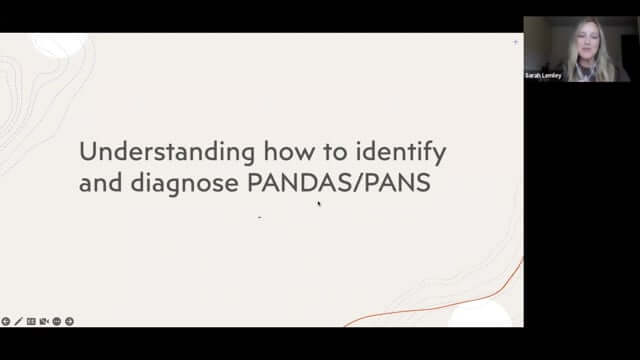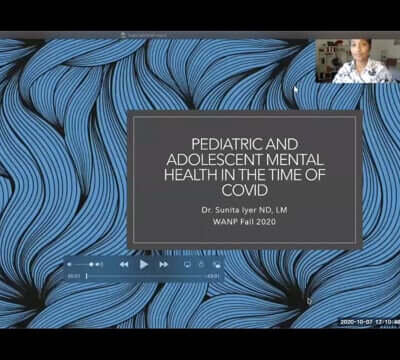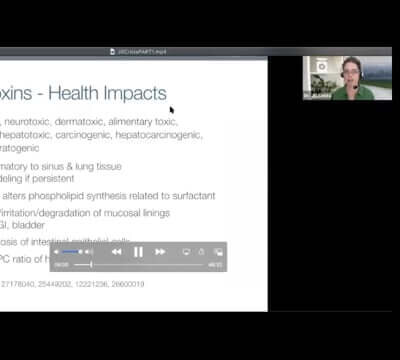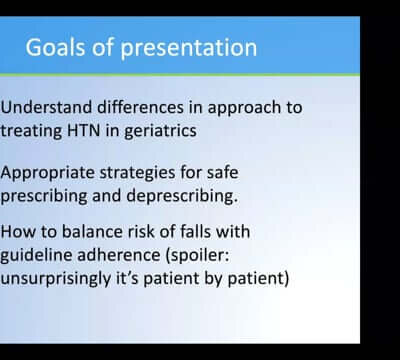Description
Cost: Non-members: $65 | Member: $35 | Student: $15
Pediatric Autoimmune Neuropsychiatric Disorder Associated with Strep (PANDAS) and Pediatric Acute-onset Neuropsychiatric Syndrome (PANS) are relatively new diagnoses impacting as many as 1 in 200 children. Often mistaken for a psychiatric illness, tic disorder, or a behavioral health problem, this autoimmune condition is frequently unrecognized and more often misdiagnosed. This may lead to the patient being treated symptomatically with psychotropic medications which, in addition to often causing troubling side effects, do little or nothing to relieve the symptoms. New and ongoing research in the emerging field of psych-neuro-immunology has demonstrated that these disorders can be caused by infection(s). Appropriate treatment involves the administration of antimicrobials and often anti-inflammatory treatments - both of which require careful medical observation and ongoing evaluation. Patients with moderate-severe presentation may require immunomodulation, which can be financially devastating to families due to the lack of insurance coverage.
PANDAS/PANS are clinical diagnoses in which formalized diagnostic and treatment guidelines have been established by leading experts across the country and published in the Journal of Adolescent Psychopharmacology. However, many medical providers are unaware of these guidelines and/or aren’t well versed in screening via their differential, which may contribute to delayed recognition, missed or incorrect diagnoses, and delayed care. The role of medical support staff and providers is to be aware of these disorders and recognize the temporal relationship of an infection and the onset of neuropsychiatric symptoms. Typically, patients will exhibit tics, obsessions, compulsions, rage outbursts, self-injurious behaviors, mood instability, separation anxiety, food restriction, and urinary issues. As these symptoms also occur in other conditions such as Tourette syndrome and a host of psychiatric disorders, it is important for medical clinicians and staff to consider initiating a discussion regarding the possibility of PANDAS or PANS as this recognition may lead to timely, appropriate, and sometimes lifesaving treatments. Research and clinical experience has shown that early recognition of these changes in a child’s functioning and behavior, thorough assessment of the child’s infectious history and exposure, and appropriate evaluation of laboratory findings results in timely application of appropriate medical therapies to address the immunological dysfunction and return the child to optimal functioning. It is through this lens of improved focus on post-infectious symptom presentation that we ensure we avoid the pitfalls of overlooked medical disorders with psychiatric presentations which will better serve our communities as we deliver care.
**This presentation is worth 1 Category 1 CE credit for Washington-licensed NDs.**
Originally presented May 4th, 2023, at WANP's CONNECT 2023 conference.




